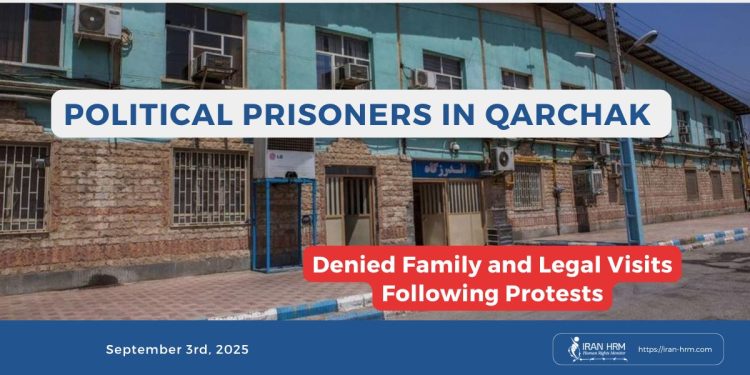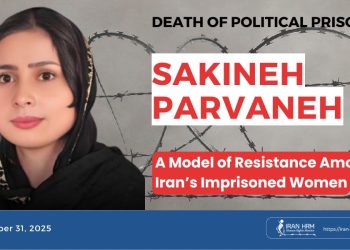Reports indicate that over the past two weeks, several political prisoners held in the quarantine ward of Qarchak Varamin Prison have been arbitrarily denied visitation rights with their families and legal counsel. This decision, reportedly imposed by prison authorities as a punitive measure against protesting inmates, has sparked widespread concerns regarding the legal and human rights situation of these prisoners. The ban on visits at Qarchak Prison once again highlights a stark violation of basic prisoner rights and intensifies pressure on women held within its walls.
Background to Restrictions: Protests Over Power Outages
Informed sources have confirmed that these severe restrictions were implemented following protests by a number of prisoners against persistent power outages at Qarchak Prison. In response to the unsatisfactory conditions and repeated electricity cuts, prisoners resorted to chanting slogans. In the wake of these protests, prison officials have evidently sought to exert additional pressure on the inmates by suspending in-person visits.
Denial of Access to Family and Lawyers
Among those reportedly denied in-person visits with their lawyers and families over the past two weeks are Golrokh Iraee, Arghavan Fallahi, Sakineh Parvaneh, Mina Mashhadi, Parivash Moslemi, Nasim Gholami Simiari, Marzieh Farsi, Azar Karvandi, Nahid Khodajoo, and Forough Taghizadeh, along with several other political prisoners. Observers describe this ongoing measure as a form of collective punishment that lacks any clear legal basis.
Qarchak Prison: A Symbol of Rights Violations Against Female Prisoners
Qarchak Varamin Prison has, for years, faced severe criticism due to its inhumane conditions, extreme overcrowding, and dire lack of sanitary facilities. This institution, which primarily houses female prisoners, consistently falls short of minimum standards for the detention of individuals. Numerous reports have documented that female political prisoners in Qarchak are repeatedly subjected to collective punitive behaviors, including the cutting of telephone access, deprivation of visits, and forced transfers to overcrowded wards.
The prohibition of in-person visits not only violates the legal rights of prisoners but also infringes upon the right of families to be informed about the well-being of their loved ones. Such actions represent a blatant disregard for transparency and the fundamental human rights obligations governing the administration of prisons.







